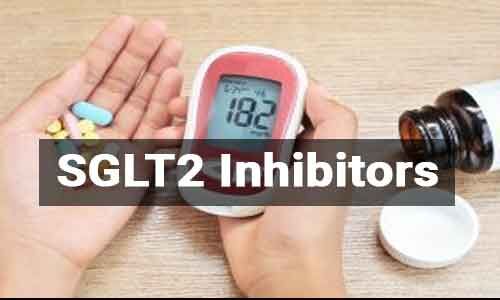- Home
- Medical news & Guidelines
- Anesthesiology
- Cardiology and CTVS
- Critical Care
- Dentistry
- Dermatology
- Diabetes and Endocrinology
- ENT
- Gastroenterology
- Medicine
- Nephrology
- Neurology
- Obstretics-Gynaecology
- Oncology
- Ophthalmology
- Orthopaedics
- Pediatrics-Neonatology
- Psychiatry
- Pulmonology
- Radiology
- Surgery
- Urology
- Laboratory Medicine
- Diet
- Nursing
- Paramedical
- Physiotherapy
- Health news
- Fact Check
- Bone Health Fact Check
- Brain Health Fact Check
- Cancer Related Fact Check
- Child Care Fact Check
- Dental and oral health fact check
- Diabetes and metabolic health fact check
- Diet and Nutrition Fact Check
- Eye and ENT Care Fact Check
- Fitness fact check
- Gut health fact check
- Heart health fact check
- Kidney health fact check
- Medical education fact check
- Men's health fact check
- Respiratory fact check
- Skin and hair care fact check
- Vaccine and Immunization fact check
- Women's health fact check
- AYUSH
- State News
- Andaman and Nicobar Islands
- Andhra Pradesh
- Arunachal Pradesh
- Assam
- Bihar
- Chandigarh
- Chattisgarh
- Dadra and Nagar Haveli
- Daman and Diu
- Delhi
- Goa
- Gujarat
- Haryana
- Himachal Pradesh
- Jammu & Kashmir
- Jharkhand
- Karnataka
- Kerala
- Ladakh
- Lakshadweep
- Madhya Pradesh
- Maharashtra
- Manipur
- Meghalaya
- Mizoram
- Nagaland
- Odisha
- Puducherry
- Punjab
- Rajasthan
- Sikkim
- Tamil Nadu
- Telangana
- Tripura
- Uttar Pradesh
- Uttrakhand
- West Bengal
- Medical Education
- Industry
SGLT2 inhibitors lowers risk of atrial fibrillation: Review

USA: People treated with SGLT2 inhibitors are at significantly lower risk of developing atrial fibrillation (AF), suggests a recent review in the journal Diabetes, Obesity and Metabolism. However, researchers add that more research is required to understand the clinical significance of these findings.
Dapagliflozin, a sodium‐glucose co‐transporter‐2 (SGLT2) inhibitor, was recently shown to reduce the incidence of AF reported episodes in the DECLARE‐TIMI 58 trial. This raised the question whether SGLT2 inhibitors, a class of antidiabetes medication, can lower the AF incidence in a high-risk population.
Basem M. Mishriky, East Carolina University, Greenville, North Carolina, USA, and colleagues explored if SGLT2 inhibitors can lower the incidence of AF. For the purpose, they pooled results from cardiovascular and renal outcome trials comparing the effect of SGLT2 inhibitors versus placebo, and reporting incident AF as a serious adverse event, among individuals with or without diabetes.
The EMPA‐REG OUTCOME trial, CANVAS, CANVAS‐R, the DECLARE‐TIMI 58 trial, CREDENCE, DAPA‐HF, VERTIS‐CV and DAPA‐CKD were included. In total, eight trials were included in the final meta-analysis.
Key findings of the study include:
- The incidence of AF, reported as a serious adverse event, was 0.9% in individuals who received an SGLT2 inhibitor compared to 1.1% in those who received placebo.
- Pooled results showed a significantly lower incidence of AF in individuals with and without diabetes (relative risk 0.79).
"This finding was driven mainly by the findings of the DECLARE-TIMI 58 trial,3 and, although exclusion of this trial attenuated the risk reduction of SGLT2i for AF, it remained statistically significant," Jacob A. Udell, University of Toronto, Toronto, Ontario, Canada, wrote in an accompanying editorial. "In summary, this systematic review highlights another cardiovascular benefit of SGLT2i with an association between SGLT2i use and reduced risk of AF."
"Our review suggests that there is a significantly lower risk of incident AF for individuals on SGLT2 inhibitors versus placebo. There was a statistically significant lower incidence of AF, reported as a serious adverse event," wrote the study authors.
"The present study identifies areas for future research. Trials evaluating the effect of SGLT2 inhibitors in individuals with type 2 diabetes and AF are needed," they concluded.
"Sodium‐glucose co‐transporter‐2 inhibitors and atrial fibrillation in the cardiovascular and renal outcome trials," is published in the journal Diabetes, Obesity and Metabolism.
DOI: https://dom-pubs.onlinelibrary.wiley.com/doi/10.1111/dom.14211
Dr Kamal Kant Kohli-MBBS, DTCD- a chest specialist with more than 30 years of practice and a flair for writing clinical articles, Dr Kamal Kant Kohli joined Medical Dialogues as a Chief Editor of Medical News. Besides writing articles, as an editor, he proofreads and verifies all the medical content published on Medical Dialogues including those coming from journals, studies,medical conferences,guidelines etc. Email: drkohli@medicaldialogues.in. Contact no. 011-43720751


